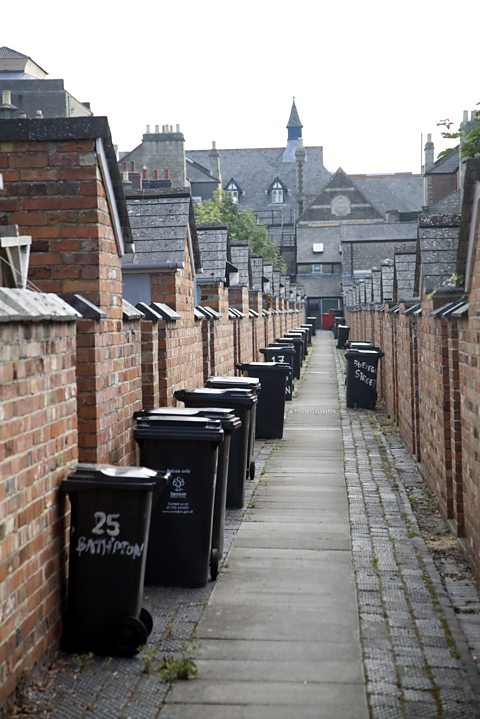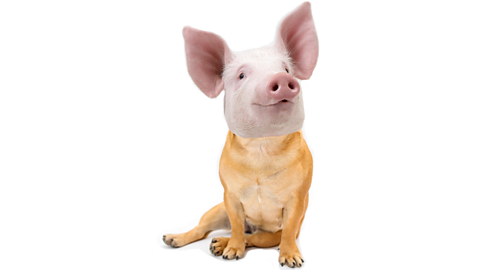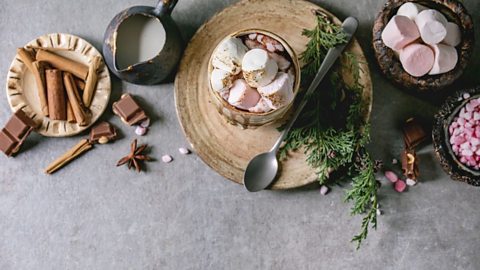We all know that accents vary massively across the UK, from Geordie to Scouse, Glaswegian to Cockney. But it’s not just how we sound that can differ, but also our choice of words.
After all, one person’s barmcake is another person’s bread roll.
To help us get to grips with the difference between a bairn and a wean, and so much more, we’ve spoken to regional dialect experts from all around the UK.
You'll be able to impress your family and friends with a whole host of new words that they might never have heard of before.
 Image source, Geography Photos
Image source, Geography PhotosWhat do you call a narrow walkway between two buildings?
They’re a feature of streets up and down the country and are commonly known in the south of England as alleys. However, across England there’s a lot of variation.
- Ginnel or gennel are used widely in the north, thought to be a corruption of the word channel. Snicket is another popular term, particularly in West Yorkshire
- In north-east England, Jonnie Robinson, lead curator of spoken English at the British Library, says: “Historically vennel was used in the North East, but it is less common now… Loaning (pronounced 'lonnin') is used especially by older speakers in former mining communities and rural areas.”
- Professor Richard Coates, from the University of the West of England, recalls people in Brighton using the old Sussex word twitten to refer to a narrow walkway.
- In Grimsby, Prof Coates says eight foot is used to describe those alleys that “were just wide enough to squeeze a car down. If they were narrower still there, they were just a passage.”
 Image source, Geography Photos
Image source, Geography PhotosWhat do you say when you want to praise something?
Depending on where you live in the UK, you might reach for one of the following.
- Lush is used in both the south-west of England and Wales, according to Prof Coates and Dr Mercedes Durham, from Cardiff University. For added emphasis Prof Coates suggests you go for the classic gert/gurt lush.
- In Wales, another term for very good is tidy, Dr Durham notes.
- Dr Erin Carrie, from Manchester Metropolitan University, adds that people say top or sound in Manchester.
- In the north-east of England, Robinson says “canny conveys a huge range of meanings, but is always positive and unites young and old, male and female speakers of all social backgrounds. Mint is common among younger speakers (especially proper mint).”
- Fine can often be seen as passive aggressive. Not in the north-east of Scotland and the Northern Isles though, where it’s the equivalent of good. Dr Sadie Ryan, also from Manchester Metropolitan University, highlights that “affa fine would be equivalent to very good.”
 Image source, Kohei Hara
Image source, Kohei Hara Image source, GSO Images
Image source, GSO ImagesWhat's your favourite term of endearment?
When talking to family and friends, we often like to use terms like darling
- Sometimes, as in north-east England, it’s simply a case of putting our before a name or kinship, eg. our Bob, our mam, our lass.
- Robinson adds that older Geordie speakers might also use “hinny (to females), bonny lad (to males) and pet (to both).” However, man is by far the most common and is used to address everyone.
- Our kid can also be heard in Manchester, often towards a sibling, especially a younger one, says Dr Rob Drummond, from Manchester Metropolitan University.
- For Prof Coates, “it’s one of Bristol’s greatest stereotypes that you use my lover”, which can be used very casually.
- To call someone your darling in Northern Ireland, you might use the Irish Gaelic word acushla, although its literal meaning is vein or pulse, according to Professor Karen Corrigan, from Newcastle University. Other terms of endearment, also from Irish, include aroon (darling), agra (love) and asthore (іЩ°щ±рІ№ІхіЬ°щ±р)…
- Cariad is a Welsh word but can be used as a term of endearment in English as well, and in South Wales, butty can be heard when referring to a friend, states Dr Durham.
- A woman or girl in Scotland might be a hen.
 Image source, GSO Images
Image source, GSO ImagesWhat do you call a child?
- If you’re on the east coast of Scotland that’ll be bairn, but if you’re on the west coast, it’ll be wean, Dr Ryan differentiates.
- Similarly in Northern Ireland, bairn is used in Ulster Scots areas whereas wean is more prominent in other regions, says Prof Corrigan. In the mid-Ulster region a young boy is a cub, and a young girl a cuttie, whereas in Belfast they’re a wee lad or wee girl.
Which lighthearted insults do you tend to hear?
These examples of insults are typically said in exasperation more than any real anger.
- Do something stupid in Scotland and you might be a numpty or an eejit, but in Wales it’d be twp. Borrowed from the Welsh language, it means stupid or foolish, says Dr Durham.
- In Northern Ireland, Prof Corrigan explains that you could be an amadan (an Irish Gaelic word for fool).
- Across the north of England, you might hear insults like daft apeth, doylem and wazzock. In the north-east specifically, Robinson highlights that daft is a common adjective, meaning silly or foolish.
Eight words or phrases we need in English
Ever wanted to know what your innerer schweinehund is? Look no further.

Five words that have changed their meaning
Why we used to call serious people 'silly' - and other language curiosities.

Seven words that describe that cosy autumnal feeling
From hygge to gezelligheid, the untranslatable words that perfectly sum up that autumn feeling.
